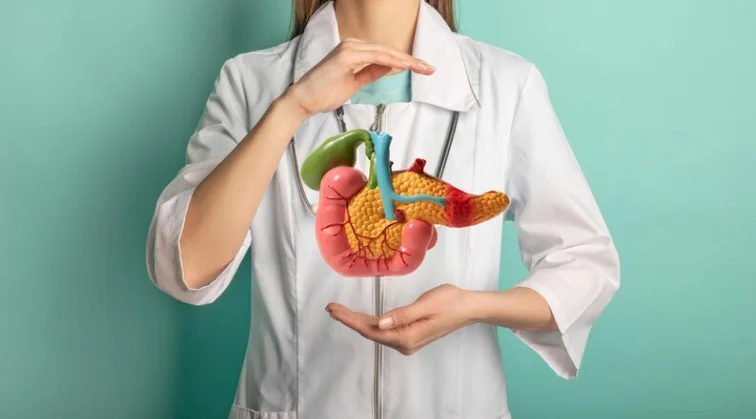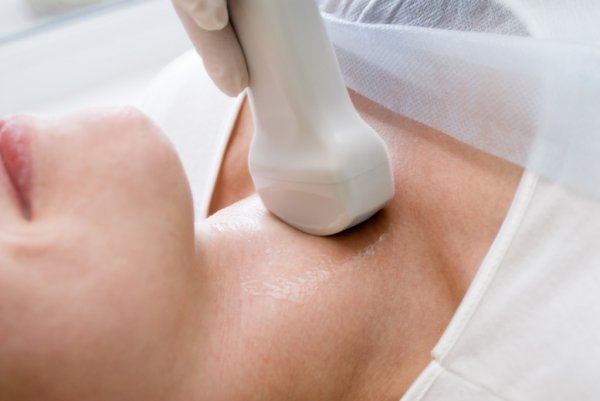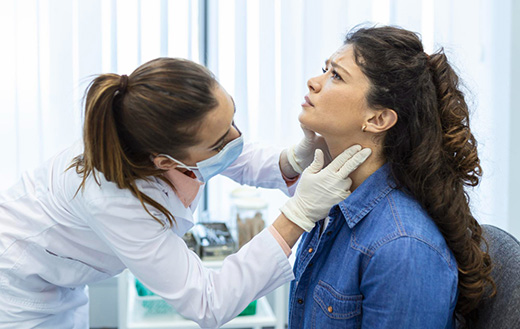Ask Ayurvedic doctor a question and get a consultation online on the problem of your concern in a free or paid mode. More than 2,000 experienced doctors work and wait for your questions on our site and help users to solve their health problems every day.
Endocrine System


Ayurvedic methods in the treatment of the endocrine system
In the human physical body, the endocrine system plays a major role in the healthy body’s daily life. The glands release hormones directly into the bloodstream and control all major aspects for – growth, development, functions, and daily activities. The endocrine system produces hormones that inhibit or stimulate physiological processes.
Mostly health problems and diseases in the endocrine system caused by lifestyle or genetics.
What will you get during an Ayurvedic session with our doctor?
The basis of Ayurvedic treatment is the “tri-dosha” theory, which evaluates an individual’s structure as a balance of “Vata”, “Pitta” and “Kapha” in combination with natural Ayurvedic medicines and other Ayurvedic treatment methods. An Ayurvedic doctor develops a personalized care program based on the course of a particular individual’s illness. The ayurvedic treatment takes into account the physical bodies, mind and consciousness, not limited to physical symptoms.
Ayurveda takes a natural and holistic approach, significantly eliminating hormonal problems. Human mental health is very important in endocrinology. Ayurveda is based on exploring and offering support for the harmonization of “stuck emotions”.
Ayurvedic tips for Endocrine system healing:
Healthy lifestyle and no stress – It manages the patient’s illness on several levels, eliminating other causes such as stress, lifestyle and emotional content.
Chakra healing – From the Ayurvedic point of view problems in endocrine system is affected when the flow of subtle energy becomes blocked in one or more of the chakras,
Take care of your state of consciousness – Ayurveda believe that our physical body is affected when we have a change in our consciousness.
Hormonal problems occur when a person does not accept something in himself, relationships, situations or the environment, the natural balance is disturbed, the hostility that is usually directed against the person himself – self-destruction program is launched.

What Causes Endocrine?
In Ayurveda, treatments for endocrine imbalances involve a holistic approach that aims to balance the doshas through lifestyle modifications, proper diet, herbal remedies, yoga, meditation, and specific therapies tailored to the individual’s constitution and imbalances. Ayurvedic practitioners often focus on restoring harmony among the doshas to address the root cause of the endocrine disorder rather than just alleviating the symptoms.Ayurveda views endocrine disorders as imbalances in the body’s doshas, primarily Vata, Pitta, and Kapha.
Ways to Prevent Endocrine According to Ayurveda
Ayurveda views endocrine disorders as imbalances in the body’s doshas, primarily Vata, Pitta, and Kapha. These imbalances can stem from various factors, including:
-
Dietary Habits: Irregular eating patterns, consuming improper foods for your body type (dosha), or eating foods that aggravate particular doshas can disturb the endocrine system.
-
Lifestyle Choices: Stress, lack of sleep, overexertion, and erratic daily routines can disrupt the balance of doshas and consequently affect the endocrine system.
-
Environmental Factors: Exposure to pollutants, toxins, and extreme climates may contribute to dosha imbalances, impacting the endocrine functions.
-
Genetic Predisposition: Ayurveda recognizes that some individuals may be inherently more susceptible to certain endocrine disorders due to their unique constitution or genetic makeup.
-
Psychological Factors: Emotional disturbances, such as chronic stress, anxiety, or depression, can influence doshic imbalances, impacting hormone production and regulation.
What’s a List of Endocrine?
Some Common Endocrine Diseases Include:
Diabetes Adrenal Disorders Low Testosterone
Cushing’s Syndrome Pituitary Disorders

How Ayurveda Can Help Endocrine?
Ayurveda takes a holistic approach to address endocrine imbalances by focusing on the root cause rather than just the symptoms. It views these imbalances as disruptions in the body’s natural equilibrium, primarily influenced by the doshas—Vata, Pitta, and Kapha.
Ayurvedic treatments for endocrine issues involve personalized approaches that aim to restore doshic balance through lifestyle modifications, dietary changes, herbal remedies, yoga, meditation, and specific therapies. By identifying an individual’s unique constitution and addressing the underlying doshic imbalances, Ayurveda seeks to harmonize the body, fostering optimal endocrine function and overall well-being.
Which Parts of the Body Are Affected:
- Hypothalamus
- Pituitary
- Thyroid
- Parathyroids
- Adrenals
- Pineal body
- The ovaries
- The testis

Why Choose Ayurveda for Endocrine?
-
Holistic Approach: Ayurveda treats the body as a whole, focusing on the root cause of imbalances rather than just the symptoms. It aims to restore harmony among the doshas, addressing not only the endocrine disorder but also overall well-being.
-
Personalized Care: Ayurvedic treatments are individualized based on one’s unique constitution (dosha), ensuring that therapies, diet, and lifestyle recommendations are tailored to the person’s specific needs.
-
Natural Remedies: Ayurveda predominantly employs natural herbs, dietary modifications, lifestyle changes, and therapies to restore balance, minimizing the use of synthetic medications and their potential side effects.
-
Preventive Approach: By emphasizing a balanced lifestyle, diet, and stress management, Ayurveda aims to prevent imbalances before they escalate into serious endocrine disorders.
-
Time-Tested Practices: Ayurveda has a rich history spanning thousands of years, with practices that have been refined and passed down through generations. Many of these practices have stood the test of time in managing various health conditions.

Ayurvedic Wellness for Endocrine at Alveda
At Alveda, our approach to endocrine wellness through Ayurveda is centered on personalized care and holistic healing. Our experienced Ayurvedic practitioners meticulously assess individual doshic imbalances to tailor treatments, combining traditional Ayurvedic wisdom with modern approaches. Through comprehensive consultations, dietary adjustments, herbal therapies, rejuvenating practices like Panchakarma, yoga, and meditation, we aim to restore balance within the endocrine system. Our focus extends beyond symptom relief; we prioritize long-term well-being by addressing the root causes of endocrine imbalances.

